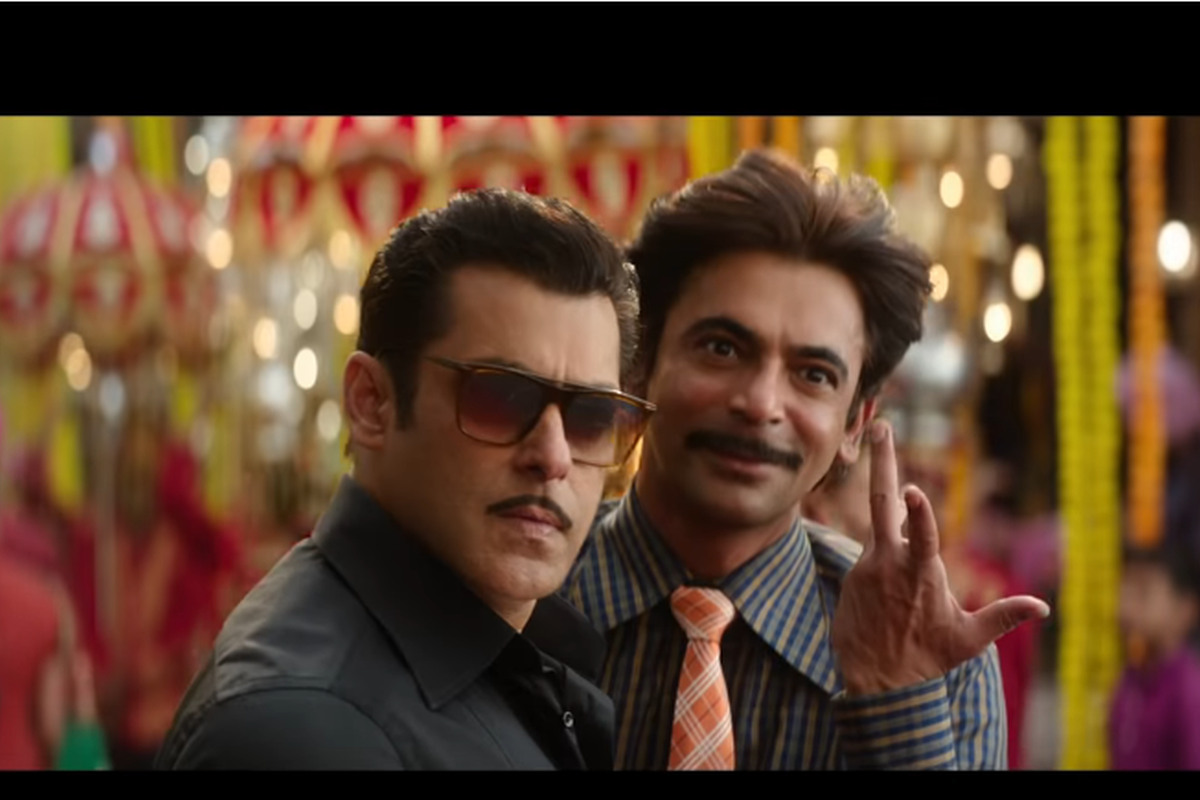Allu Arjun, Jackie Shroff call for a green, plastics-free planet on Earth Day
Telugu superstar Allu Arjun and Bollywood actor Jackie Shroff observed the Earth Day on Monday.
The ideology, fed and hidden through comedy, reasserts itself in the end after closing all avenues of anything new in the film.

( Photo: YouTube/@T-Series)
Film: Bharat
Director: Ali Abbas Zafar
Cast: Salman Khan, Sunil Grover, Katrina Kaif, Disha Patani, Jackie Shroff, Tabu
Advertisement
Rating: 2
It is the season of Nationalism. The election fever has not yet cooled down. The Hindi film industry reflects the sentiments and mood of the society it makes and bases its movies on.
Bharat is one such film. It is a spectacle. The Salman Khan, Katrina Kaif and Sunil Grover starrer is an official adaptation of the South Korean film, An Ode to My Father. Depicting Indian history from the partition in 1947 to 2010 through the life of a not-so-common-man, Salman Khan, Bharat is a full pack masala entertainer.
After a movement of nation-based film releases starting from Raazi to the latest release India’s Most Wanted, Bharat adds its own interpretation of the popular phenomenon. A comic take on nationalism, the film explores the same old ideologies with a few interesting changes and re-establishes them by ‘collective consciousness’.
But, the film has its moments. For instance, it would be unfair to not mention a sequence in the first half, where Sunil Grover, who plays Salman’s best friend, appears in the form of an employment Devi (goddess) to announce the news of a prospective job in the Gulf. That sequence with all the devotional music background and the goddess making a job announcement in a seductive voice is a revolutionary moment on screen, at least, in a commercial entertainer that has Salman Khan as the hero.
Bharat is ideologically old-school. Katrina Kaif is literally a modern manifestation of an independent spirit, a woman who lives on her own terms but is eventually neutralised by the dominance of the superstar that the film builds and bases itself on. In this regard, the film loses itself in the image of the megastar – Salman Khan. Everything revolves around him, from the beginning to the end.
Despite Salman being the overarching hero, there are moments in the film when his co-stars shine. Katrina Kaif as Kumud does considerable justice to her parts. A notable mention is Sunil Grover, whose sense of comic timing and decent acting lends major support to the film.
Disha Patani makes her presence felt in the film but has no role in it.
Bharat, if not an ode to Salman’s father in the film – Jackie Shroff, is, in fact, a tribute to everything that Salman Khan is and perhaps, stands for. The action, songs, drama, one-liners and a shirtless Salman, all of it are fit into the film to present the phenomena of what it takes to be a superstar.
Almost a fading star dancing to “Chashni” in a desert with Katrina Kaif with the effort showing on his face, that tired look is not hard to miss.
Salman returns from death and becomes the champion saviour of all. The film has tried to establish from the very beginning as to what a nation is, according to Salman’s father Jackie Shroff.
Salman embodies and personifies all that a country – India’s – spirit represents and later bows out from his duty when he turns 70 and announces at the end of the film, “Ye naya Bharat hai…..” (It doesn’t need the likes of me ).
The interweaving of major historical events through old footage of 1983 Cricket World Cup to Jawaharlal Nehru’s death into the personal lives of the film’s characters is interesting. Especially, how Salman’s sister wanted to get married to a man who looked exactly like Pandit Nehru.
If there was a slogan Bharat Mata ki Jai there was also Inquilab Zindabad. The hangover from Ek Tha Tiger, Tiger Zinda Hai, Bajrangi Bhaijaan, Tubelight still lurks in the film, wherein, at many moments one confuses it for a Kabir Khan film. There is not much difference though, in both their films.
If the film’s narrative was tracing a span of over 70 years, the look of the overall film when not shot in India forgets the period it is set in; the production design in Malta, for example.
The soundtrack tries to blend with the narrative of the film. “Slow Motion” song was grand but not shot well. “Turpeya”, “Chashni” and others deserve a commendable mention.
The dialogue of the film fits the context it portrays. Salman has clever one-liners and the comedy scenes are well spoken and executed. The problem with the film is the extent of its spectacle. The audiences will find themselves completely consumed by the narrative. In the second half, the film gets draggy especially with the over-dramatic ending — Salman weeping, Sunil Grover weeping, Tabu weeping and everyone on the screen weeping.
Sometimes, the idiosyncrasies’ and artificiality of the film goes too far. For instance, the Somalia pirates’ attack on the cargo ship and their subsequent withdrawal following Bhai’s new kind of Gandhian non-violent approach developed from Jai Ho, Bajrangi and Tubelight. Salman’s dialogue that “duniya ki koi bhi ladai… pyaar, baatcheet aur hindi film gaane se jeete ja sakti hai” is another one.
A 70-year-old Bharat personified through Salman can still fight when he is attacked. Numerous times, the actor is told in the film that he is human and trying to be god-like and overarching is unnecessary. Perhaps, everyone from Salman to the makers of the film should have taken the advice literally.
The ideology, fed and hidden through comedy, reasserts itself in the end after closing all avenues of anything new in the film.
Advertisement